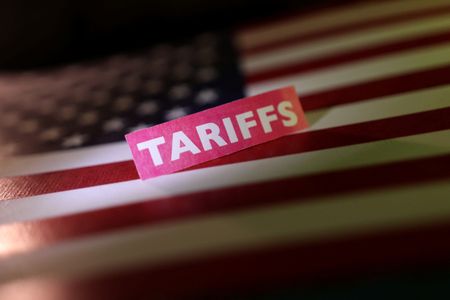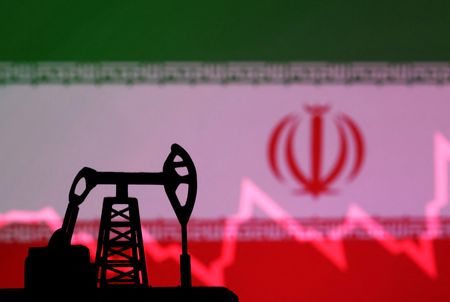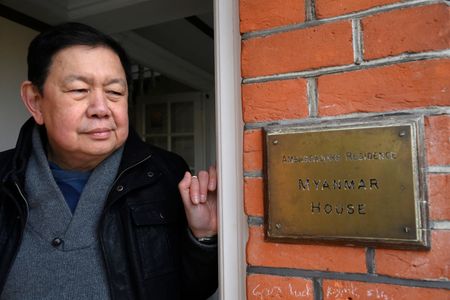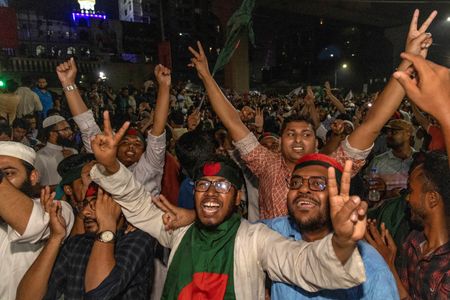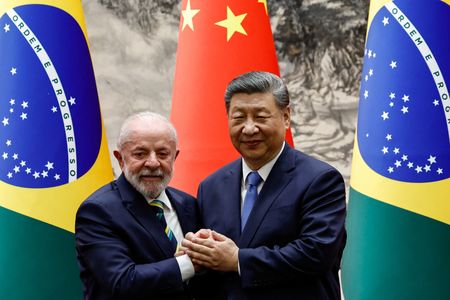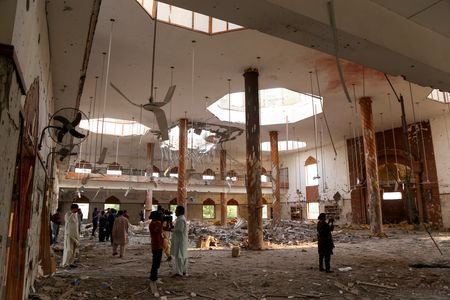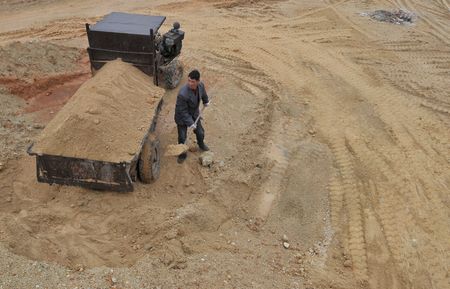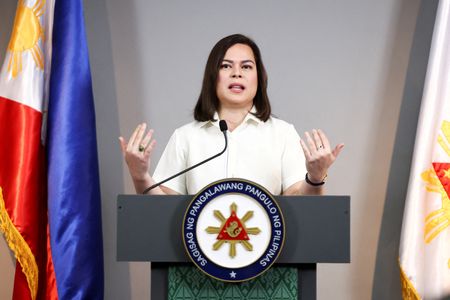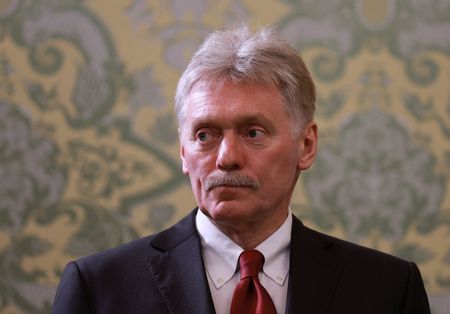By Jihoon Lee
SEOUL (Reuters) -Asia-Pacific trade envoys will gather this week in South Korea for discussions on multilateral cooperation, with talks taking place at a time when countries are scrambling to respond to U.S. President Donald Trump’s sweeping tariffs.
Trade representatives of 21 member economies of the Asia-Pacific Economic Cooperation grouping will attend two days of meetings starting Thursday in South Korea’s resort island of Jeju, as part of a second round of senior officials’ meetings ahead of an annual APEC leaders summit later this year.
The APEC trade envoys gathering comes amid growing protectionism triggered by Trump’s tariffs, which have targeted more than half of the bloc. APEC accounts for about half of global trade and 60% of global GDP.
Participants will attend closed-door sessions on broad topics ranging from multilateral trade to revitalisation and sustainability, with the official agenda expected to include the role and reform priorities of the World Trade Organization amid current global challenges.
The officials are also expected to discuss other topics such as advancing the free trade area of the Asia-Pacific region, boosting digital trade, ramping up artificial intelligence readiness, and driving sustainable, inclusive growth.
The Trump administration views the WTO as a body that has enabled China to gain an unfair export advantage and has recently moved to pause U.S. funding to the body.
Last month, the WTO sharply cut its forecast for global merchandise trade from solid growth to a decline, saying U.S. tariffs and the spillover impact could lead to the heaviest trade slump since the height of the COVID pandemic.
Trump has introduced high tariffs against rival China, neighbours Canada and Mexico, Asian allies Japan and South Korea, and several Southeast Asian countries including Vietnam, Thailand, Indonesia and Malaysia, among other trading partners.
BILATERAL TALKS
On the sidelines of the gathering, U.S. Trade Representative Jamieson Greer is scheduled to hold at least one bilateral trade talk with his South Korean counterpart on Friday.
The gathering comes after the Trump administration signed its first bilateral trade agreement with Britain last week and agreed with China to lower tariffs significantly at their first face-to-face talks in Geneva on May 10-11.
It was not clear who would represent Beijing at the gathering and whether there might be more bilateral meeting with the United States. Reuters has confirmed at least a third of the countries are sending their trade chiefs.
In late April, when South Korea agreed with Washington to craft a trade package by July after an opening round of negotiations, Seoul said the meeting in Jeju would be an “interim assessment”.
“There is scepticism we will see significant progress at the meeting, as there have not been substantive negotiations at the working level,” said Heo Yoon, a professor of international trade at Sogang University in Seoul.
In the latest chapter of South Korea’s ongoing political turmoil, Prime Minister Han Duck-soo, who had led negotiations as acting president, resigned earlier this month, followed swiftly by Finance Minister Choi Sang-mok, who took part in the opening round of talks as the country heads for a snap election.
“What South Korea will do at this stage is to make efforts to set an atmosphere where it can steer future negotiations to its advantage,” said Heo, who advises on trade talks.
U.S. Commerce Secretary Howard Lutnick said in an interview with Bloomberg News last week that trade deals with South Korea and Japan “are not going to be fast deals”, as they were expected to take significantly more time to complete than the deal with Britain.
To speed up negotiations, Washington and Seoul have agreed to bring all the proposed agendas to one table and discuss them altogether, rather than setting up separate working groups for each, one South Korean official told Reuters.
“It is likely the United States will also meet other countries at the gathering, so we will monitor those as we proceed with our own negotiations,” another South Korean official said.
The Trump administration has initiated trade talks with many other APEC members, including Japan, Indonesia, Taiwan, and Vietnam, while other countries, such as Canada, Thailand and Malaysia, are also seeking negotiations.
APEC is a regional non-binding economic forum established in 1989 to leverage the growing interdependence of the Asia-Pacific region, with its member “economies” also including Hong Kong and Taiwan.
(Reporting by Jihoon Lee; Editing by Ed Davies and Michael Perry)

